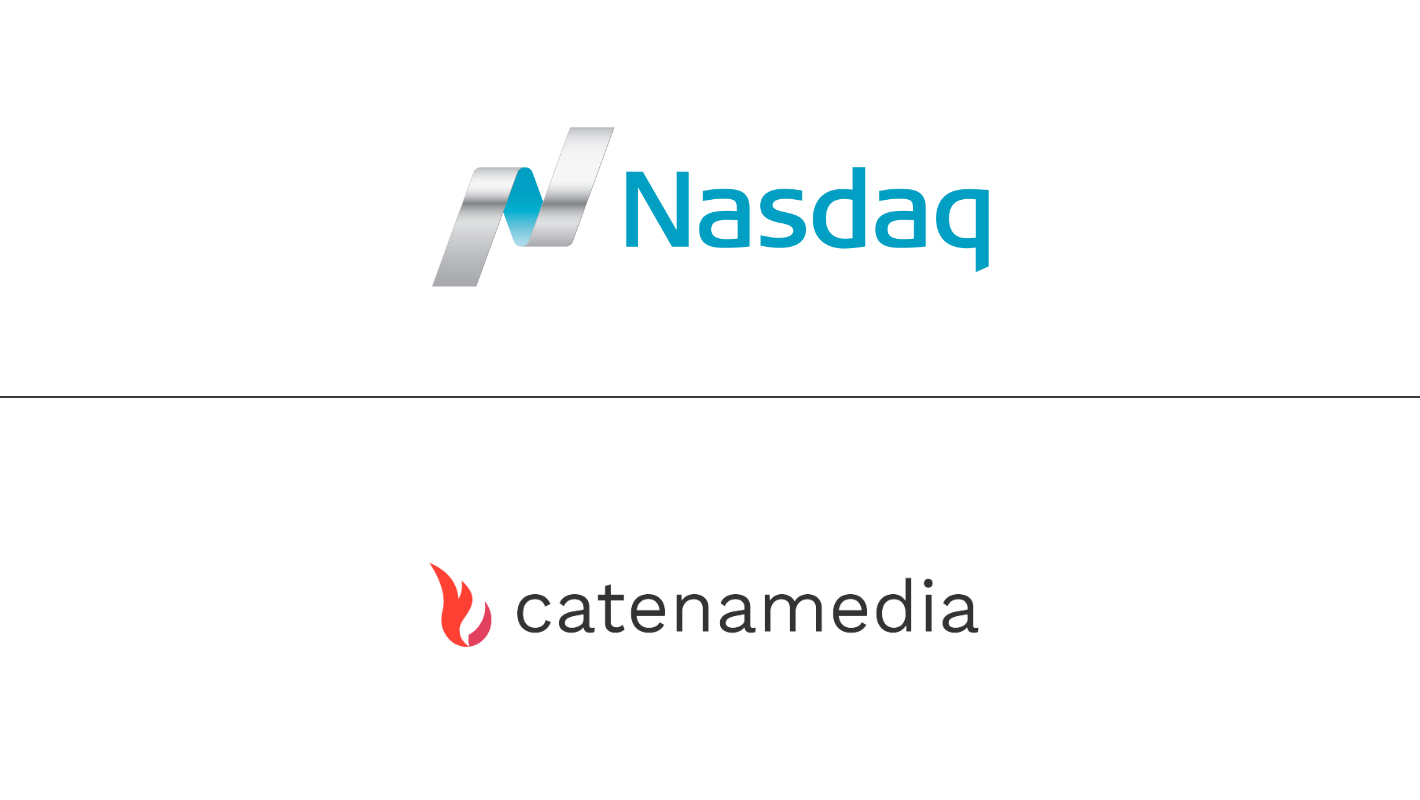News
Catena Media has been approved for listing on Nasdaq Stockholm

Nasdaq Stockholm’s listing committee has approved Catena Media plc for listing on Nasdaq Stockholm’s main market. The approval is subject to customary conditions, including the approval and registration of a prospectus by the Swedish Financial Supervisory Authority. Trading on Nasdaq Stockholm is expected to commence on Monday 4 September 2017.
The shares will be traded in the Mid Cap segment under the same ticker (CTM) and with the same ISIN code (MT0001000109). No new shares will be issued in connection with the listing.
Due to the listing on Nasdaq Stockholm, Catena Media’s shares will be delisted from Nasdaq First North Premier, and the last day of trading is expected to be on Friday 1 September 2017. Shareholders of Catena Media do not need to take any action in connection with the delisting from Nasdaq First North Premier or the listing on Nasdaq Stockholm.
“The listing on Nasdaq Stockholm is a result of great teamwork and is proof of the solid organisation we have built. This will continue to enable our further growth. Another big milestone in our company’s history”, said Robert Andersson, CEO of Catena Media.
Prospectus
The prospectus that has been prepared in connection with the listing on Nasdaq Stockholm is expected to be published on Catena Media’s website, www.catenamedia.com, on 31 August 2017.
Advisor
Gernandt & Danielsson Advokatbyrå is acting as legal advisor to Catena Media in connection with the listing on Nasdaq Stockholm.
About Catena Media
Catena Media is a fast-growing online performance marketing company, having established a leading position through strong organic growth and acquisitions. The company was founded in 2012 and has 239 employees in the US, Serbia, UK and Malta, where the Head Office is situated. The company is listed on Nasdaq First North Premier.
In 2016, revenues reached EUR 40 million. The Certified Advisor is Avanza.
News
N1 Insights: The iGaming Trends Everyone Will Be Talking About This March

In January, N1 Partners launched a new series featuring monthly iGaming market insights – and in March, the team continues to share practical analytics. Each month, N1 Partners’ iGaming affiliate marketing experts break down key changes across traffic sources, GEOs, content, technologies, regulation, and other areas, drawing on real data, campaign statistics, and the experience of the industry’s strongest players.
March shows that the market is окончательно moving out of its winter testing mode and shifting toward precise optimization and scaling. The focus is now on the efficiency of funnels, resilience to platform updates, and process technological maturity. Competition is intensifying, and decisions are becoming increasingly data-driven and strategic.
What is already changing – and what to prepare for in the coming month – we break down step by step.
Part 1: Traffic and Performance
1.1 Top trending traffic sources in March and upcoming tendencies
In terms of dynamics, Facebook remains the main driver, continuing to demonstrate the highest level of stability among traffic sources. TikTok and ASO periodically show strong results as well; however, these channels are characterized by high volatility and do not always provide a predictable traffic volume.
Speaking about SEO traffic, the following trends can be highlighted:
1. Ongoing content optimization in line with E-E-A-T principles. We are seeing cases where websites generate clicks but fail to convert traffic because Google does not perceive them as sufficiently useful or authoritative for users.
- A growing interest in the cross-brand approach. Such projects tend to adapt more easily to market and algorithm changes. We are also observing an increase in sports-related traffic driven by a packed events calendar in Q1 2026.
- In addition, there is a continued gradual cleanup of PBN websites from search results, along with a shift in focus from traditional link-building toward the development of high-quality content.
1.2 Brand requirements for traffic quality
More and more brands are revising their performance evaluation approach, shifting from a 3-4 month horizon to analyzing results within the current month. This significantly increases traffic quality requirements from the very start of cooperation.
No one expects 100% ROI in the first month; however, traffic must demonstrate positive dynamics and, most importantly, bring in active and “real” players. Early engagement metrics and audience quality indicators are becoming the key factors in decisions regarding scaling and further collaboration.
1.3 KPIs and traffic evaluation metrics
In the SEO traffic segment, the key metrics that determine further activity and potential caps are ROAS and Average Deposit Count. These indicators make it possible to assess not only the initial conversion but also the real value of the acquired player.
As for Facebook, PPC, ASO, and other traffic sources, the market is increasingly shifting its focus from volume to quality. Primary attention is given to the deposit-to-redeposit ratio, player LTV, and stream profitability in weeks two, three, and four. Monetization depth and behavioral metrics are becoming the decisive factors when it comes to scaling decisions and budget allocation.
1.4 Scaling approaches that will deliver the best results in March
Much still depends on the GEO and traffic source – there is no universal scenario. For PPC, maintaining volume remains the priority, while for Facebook, stable ROI becomes the key factor. The approach to performance evaluation is becoming increasingly differentiated depending on the acquisition channel.
From an SEO perspective, several consistent trends can be highlighted:
- Parasite SEO.
Across most of our key GEOs, we are seeing a sharp increase in new content published on high-authority platforms such as Trustpilot, Reddit, Yahoo, and other major domains. - SEO funnels with YouTube channels.
Despite some skepticism, this format delivers both volume and stream profitability. Video content strengthens trust and improves organic traffic conversion rates. - Niche review websites.
Large portals are entering narrow segments less frequently, while smaller players are successfully capturing rankings for highly specific keyword queries. These are often simple, strictly keyword-optimized one-page websites that nonetheless demonstrate strong performance. - Local keyword queries.
These perform especially well in smaller but high-income GEOs such as Denmark, Norway, Austria, and Switzerland. In these markets, a localized approach results in significantly higher conversion rates due to the audience’s strong purchasing power. - Cross-brand strategies.
However, they are effective only with strong coordination: a responsive affiliate manager on the webmaster’s side and a strong product manager on the brand’s side who can quickly assess traffic quality and provide prompt feedback on the funnel. Without fast communication, this model loses efficiency.
Part 2: GEO Priorities
2.1 Tier-1 GEOs with the highest growth potential in March
Across Facebook, PPC, and other paid traffic sources, several GEOs stand out with relatively small but high-quality audiences. Players demonstrate consistent activity and strong monetization, particularly in Austria and Germany. This remains a fairly traditional trend.
In terms of SEO, strong potential is currently emerging in Canada, Norway, Denmark, New Zealand, Ireland, and Slovenia. In these countries, parasite SEO is actively developing, cross-brand strategies are performing effectively, and new niche review websites are entering the market with well-structured content and carefully designed UX. Competition is gradually intensifying; however, due to the overall improvement in project quality, the potential for organic scaling remains high.
2.2 More challenging GEOs to enter in March
When it comes to SEO traffic, the situation across key Tier-1 markets remains stable: Germany, Australia, and Canada continue to be characterized by high competition and increased regulatory risks. In Europe, strict GDPR compliance requirements remain in force, where data handling mistakes can lead to significant fines.
Australia also enforces stringent requirements from local regulators. Under such conditions, SEO in these GEOs requires a cautious strategy, strong legal expertise, and heightened attention to compliance.
The situation with Facebook and PPC traffic looks different. The market has accumulated substantial expertise in Tier-1 regions, so Facebook traffic is likely to remain stable and continue performing effectively with proper ROI management.
At the same time, PPC in Tier-1 is becoming increasingly challenging: growing competition, stricter platform policies, and rising auction costs may make this year particularly demanding for partners who primarily rely on PPC traffic.
2.3 March regulatory changes impacting SEO strategies in Tier-1 GEOs
The trend toward stricter regulatory measures in Tier-1 markets will continue to gain momentum. Increased tax pressure and tighter deposit limits per player are already shaping a steady trend: part of the audience in Europe is gradually shifting toward “grey” operators. In turn, this is attracting new webmasters to these markets.
At the same time, tightening restrictions are significantly narrowing traditional funnels and limiting promotional opportunities in the conventional SEO sense. As a result, the market is increasingly moving toward hybrid models, where organic traffic is combined with Facebook, Telegram, social sources, and parasite SEO funnels.
Such diversification is no longer just a competitive advantage – it is becoming a necessity to maintain both traffic volume and quality amid growing regulatory pressure.
Part 3: SEO Content and Algorithms
3.1 How will the effectiveness of classic link building change?
There are already clear precedents showing a decline in the effectiveness of traditional link building. Previously, it was possible to purchase 100 backlinks, with 50 getting indexed and 10 actually ranking and delivering tangible results. Today, there is a high probability that all 100 links may bring little to no measurable impact.
Search engines are increasingly shifting their focus from external factors to the internal quality of a website. Priority is given to navigation usability, page load speed, well-structured content architecture, clear information formatting, and genuine user value. Under these conditions, a mechanical backlink growth strategy is losing effectiveness and requires a shift toward a more comprehensive approach focused on product quality and user experience.
3.2 Which SEO approaches will stop working as effectively as before?
- PBNs and mass purchasing of cheap backlinks are gradually losing relevance.
- A broad keyword set no longer guarantees high traffic volume.
- Long-form content created solely for volume is becoming ineffective.
- Generic, one-size-fits-all content is giving way to highly niche, specialized content.
Part 4: Economics, Costs, and ROI Forecasts
4.1 How will traffic costs change in March compared to the beginning of the year?
After the holiday period, the auction traditionally cools down slightly, making traffic costs more manageable. March is likely to become a favorable period for operations, with traffic available at more optimal prices.
At the same time, it is crucial to closely monitor global events, as auctions tend to react very sensitively to external factors. This can significantly impact both traffic costs and volumes.
4.2 Which factors will have the strongest impact on ROI in March?
For advertisers, the key factor remains player engagement with the product itself. The depth of interaction with the platform directly affects overall economics, retention, and long-term user value.
As a result, many advertisers are actively testing tailored approaches that focus less on acquisition volume and more on the quality of the product experience and the logic of the user flow. Optimizing onboarding, simplifying deposit processes, and strengthening retention strategies are becoming top development priorities.
4.3 How open will brands be in March to flexible deals for high-quality traffic?
This factor influences the market more strongly than it may seem. While overall traffic volume remains sufficient, truly high-quality traffic is becoming increasingly scarce. Under these conditions, partners are becoming more selective when choosing brands to work with.
Priority is given to products that demonstrate flexibility – those willing to negotiate individual terms, respond quickly to traffic quality feedback, and avoid imposing strict caps without objective reasons. Flexibility and openness to dialogue are becoming key competitive advantages in attracting and retaining strong webmasters.
4.4 How will the balance between traffic volume and margins change in March?
No significant changes are expected in March, as the market is likely to move toward stabilization. After active periods, market players tend to balance their performance metrics and establish more predictable unit economics.
There is still enough traffic volume in the market; however, the priority is shifting from quantity to quality. No one is willing to pay simply for traffic anymore – the key factors are efficiency, audience engagement, and actual profitability.
In conclusion, 2026 is likely to become a year of optimization and selection. Those who can quickly adapt to change, work closely with partners on the product side, and build strategies around real player value will be the ones who succeed. In a market saturated with volume, quality, transparency, and sustainable ROI are becoming the main competitive advantages.
The N1 Partners team of professionals understands the specifics of different traffic sources, GEOs, and cooperation models. That’s why we are ready to build flexible terms, respond quickly to market changes, and help our partners maintain stability even amid increasing pressure from regulators and platforms.
- 14+ casino and sportsbook brands with Reg2Dep up to 70%
- 10+ Tier-1 GEOs
- CPA up to €700 and RevShare up to 45% + NNCO for top partners + hybrid models
Be number one with N1!
News
N1 Traffic Cups: The Year of Traffic Tournaments Starts soon

N1 Partners is launching a series of traffic tournaments N1 Traffic Cups – with the first one kicking off this March. Throughout 2026, partners can expect a variety of promo activities: from standalone cups to a global championship.
This marks a logical continuation of N1 Partners’ community-focused initiatives. Recently, the team summed up the results of N1 Puzzle Promo – a top-tier promotion in the iGaming industry that ran for almost the entire year of 2025. After gathering participant feedback, consolidating the best practices from the successful campaign, and enhancing it with new engaging mechanics and a fresh perspective, N1 Partners developed a brand-new concept. The traffic tournament series will provide additional opportunities for teams working with traffic and focused on consistent performance growth and scaling results.
SEO teams, get ready – the first stage will be the N1 SEO Traffic Cup, opening the new season and setting the tone for the entire 2026 tournament series. A dedicated leaderboard with a tiered level system based on performance, a new competitive format, and a focus not only on scale but also on real traffic efficiency – this spring promises to be truly competitive.
Alexa Bond, Head of Affiliates at N1 Partners, comments on the upcoming launch:
“There are plenty of races and battles in the industry, but it was important for us to create a format that stands out in both spirit and approach. We’re not just preparing another competition – we’re building a story with character, centered around strategy, structure, and true competitive drive.
2026 is a year of major sporting events: the Olympics and the FIFA World Cup. The spirit of competition and top-level achievement perfectly aligns with the DNA of N1 Partners: energy, high performance, and healthy competitive ambition are what motivate and push both us and our partners forward.”
We’ll reveal all the details very soon…
Stay tuned to N1 Partners’ social media channels and follow the latest updates in iGaming media.
To learn more about the tournament launch, contact N1 Partners Leadgen Manager, Kristina:
Email: [email protected]
Telegram: https://t.me/Christina_N1L
LinkedIn: https://www.linkedin.com/in/christina-ladik-6a7068206/
Why N1 Partners?
- 14+ casino and sportsbook brands with Reg2Dep up to 70%
- 10+ Tier-1 GEOs
- CPA up to €700 and RevShare up to 45% + NNCO for top partners + hybrid models
Be number one with N1!
News
N1 Partners’ Sky Dining Event for Top Partners at SiGMA Eurasia

AIBC Eurasia in Dubai, which once again brought together top companies from the iGaming industry, became the first major event for N1 Partners after the grand show event in Barcelona celebrating the end of the N1 Puzzle Promo. So the conference in Dubai was a great opportunity to discuss plans for 2026 and set traffic priorities together with the N1 team.
Of course, N1 Partners couldn’t leave their top partners without a surprise. That’s why the affiliate program organized an exciting gastronomic experience in Dubai – Dinner in the Sky – for the Seven Group media buying team!
Here’s how it went 👇🏼
Listed by Forbes among the world’s 10 most unusual restaurants, Dinner in the Sky offers one of the most unique gastronomic experiences on the planet – a dinner 50 meters high with panoramic views of Dubai. It was exactly this experience that the N1 Partners affiliate team chose to invite their partners from the Seven Group media buying team.
“For us, events like these are more than just gatherings – they’re an opportunity to build truly genuine partnerships, grow closer, and better understand our partners. Dinner in the Sky was the perfect format to discuss plans, exchange ideas, and simply share vivid emotions with our top partners in a relaxed, informal setting. Moments like these lay the foundation for strong, long-term collaborations,” comments Alexa Bond, Head of Affiliates at N1 Partners.
Dinner highlights:
- top partner team
- 90 minutes
- 50 meters above the ground
“We’d like to thank N1 Partners for the invitation to a business dinner where we were able to connect and spend time in a truly pleasant atmosphere. For us, this is a great sign. First, it shows that our traffic is highly valued by N1 Partners. Second, it proves that our partner is committed to developing business relationships through trust and personal interaction.
Many thanks to the N1 Partners team for the warm welcome and attention to detail. We were absolutely delighted and took away so many positive emotions that we’ll be bringing back with us from Dubai!” — shared the Seven Group team.
Getting invited to an exclusive Sky Dining event by N1 Partners is the result of consistent and effective collaboration with the affiliate program. Strong performance deserves a premium approach and special attention to top partners. At N1, partnerships are built on trust, transparent terms, and fast communication – enabling not only traffic scaling, but also going beyond standard cooperation to create truly unique experiences.
“We’ve been working with N1 Partners for almost a year, with the main traffic coming from Google PPC, and during this time we’ve managed to reach solid volumes. Integration is fast, data exchange is stable, and the team is always available – without unnecessary bureaucracy and with full involvement in the processes. In such a dynamic line of work, this is especially important.
We were happy to meet the N1 team offline in Dubai in this format and receive a gift that only подтверждает that our partnership is getting stronger,” shared the Seven Group team.
Catch N1 Partners at the upcoming iGaming conferences worldwide:
- 14+ casino and sportsbook brands with Reg2Dep up to 70%
- 10+ Tier-1 GEOs
- CPA up to €700 and RevShare up to 45% + NNCO for top partners + hybrid models
See you soon!
-

 News2 weeks ago
News2 weeks agoTop Sports Events & Promos by N1 Partners: Where to Drive Tier-1 Traffic in February
-

 News2 weeks ago
News2 weeks agoN1 Partners’ Sky Dining Event for Top Partners at SiGMA Eurasia
-

 News6 days ago
News6 days agoN1 Traffic Cups: The Year of Traffic Tournaments Starts soon
-

 News4 days ago
News4 days agoN1 Insights: The iGaming Trends Everyone Will Be Talking About This March

























